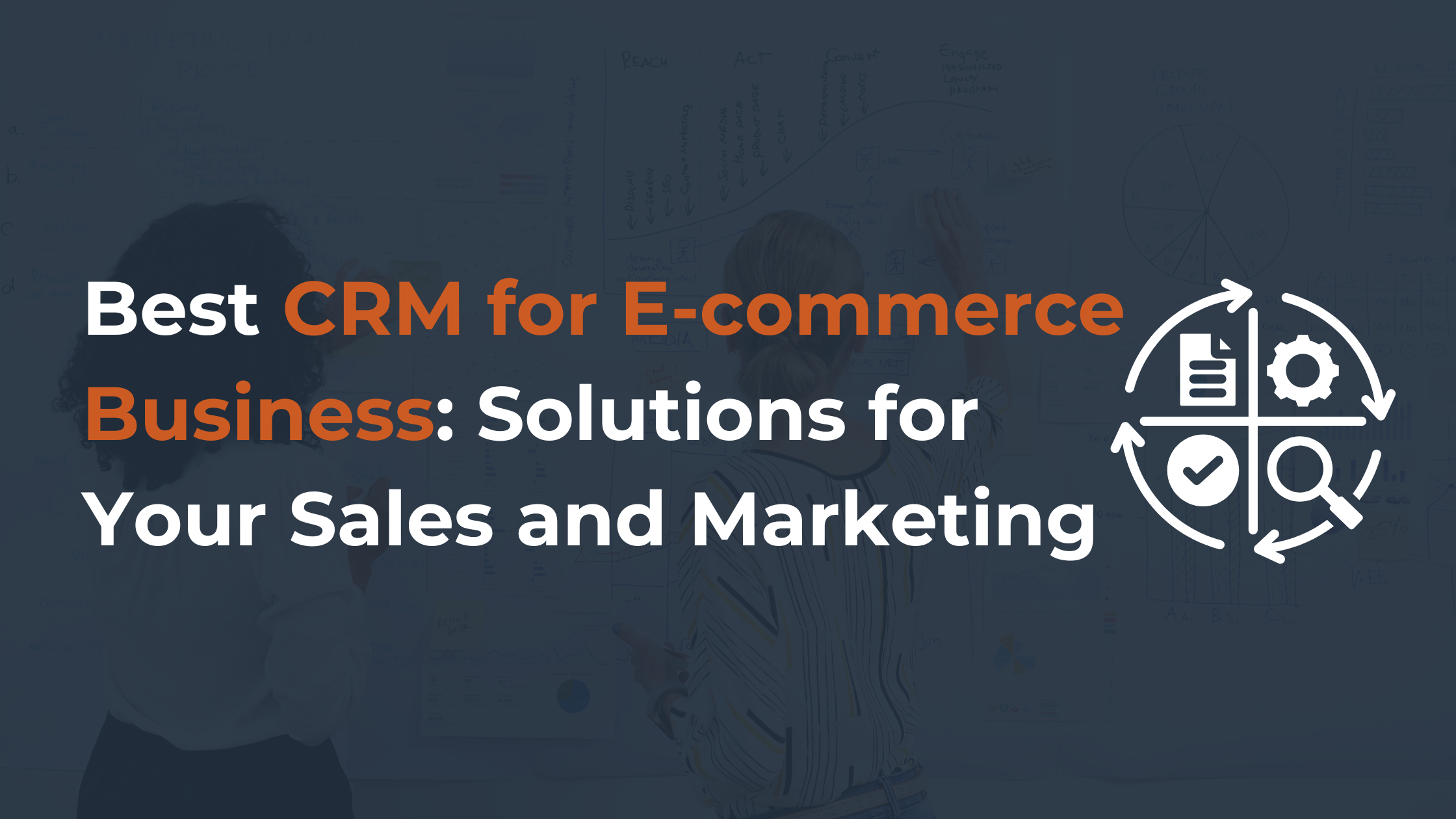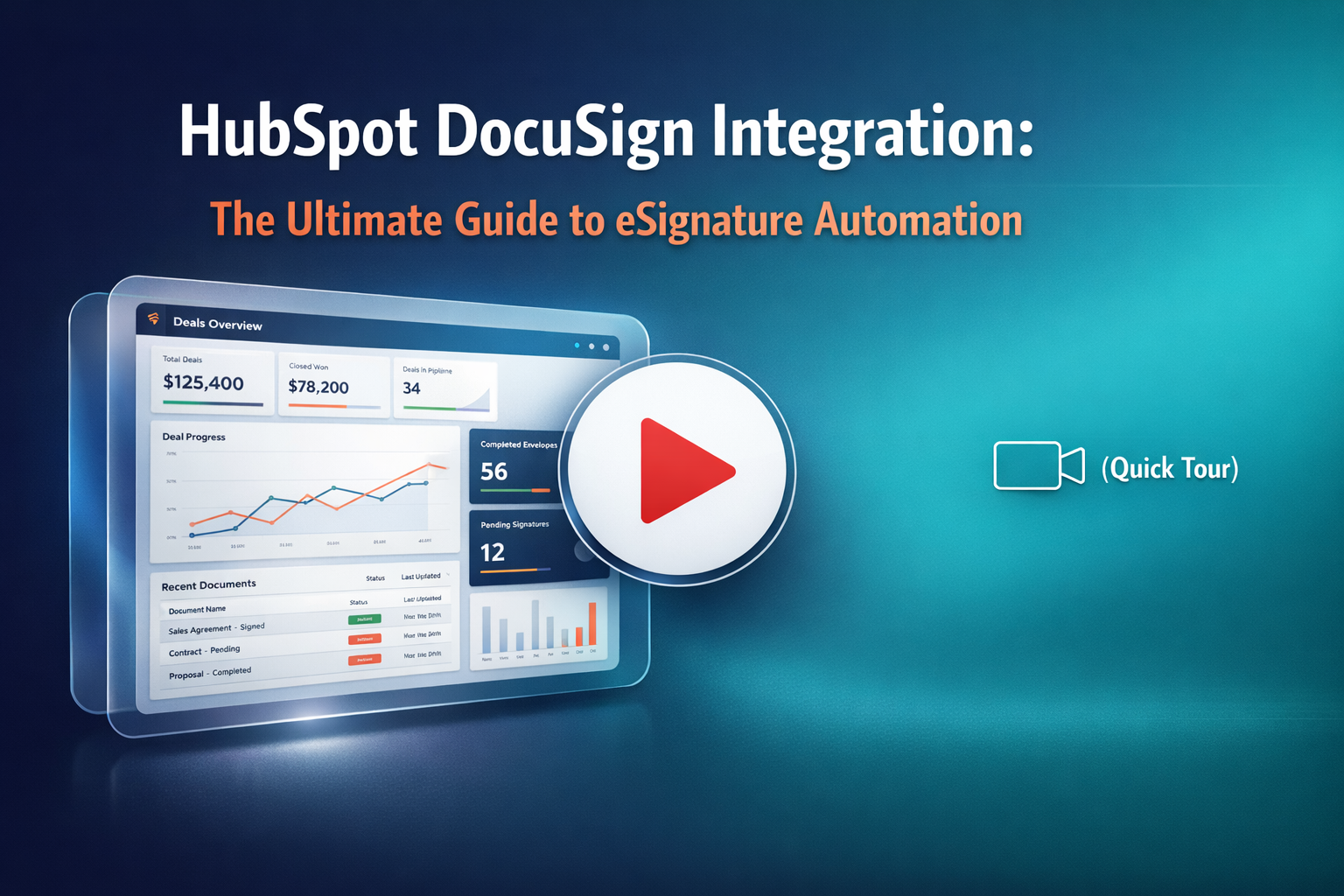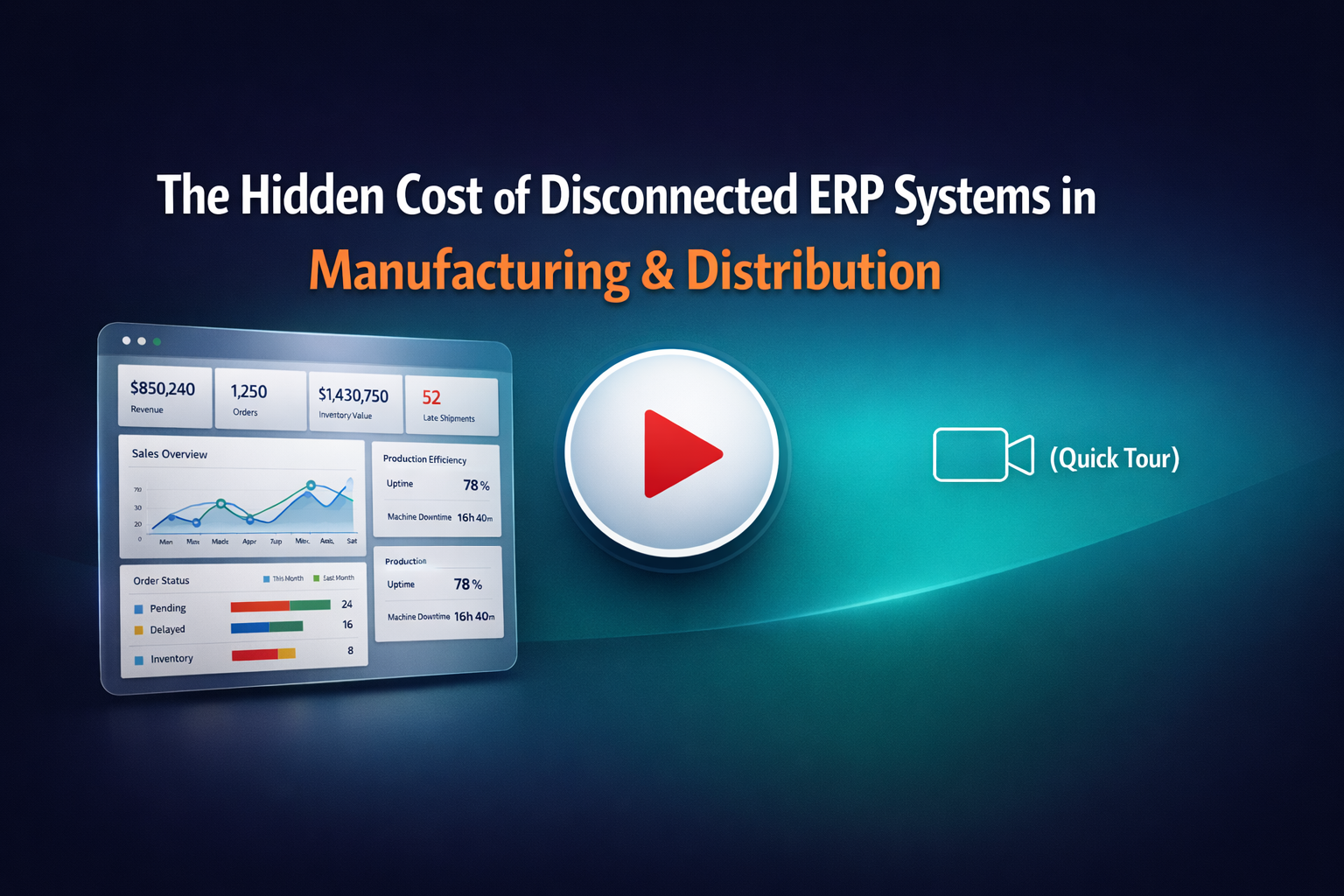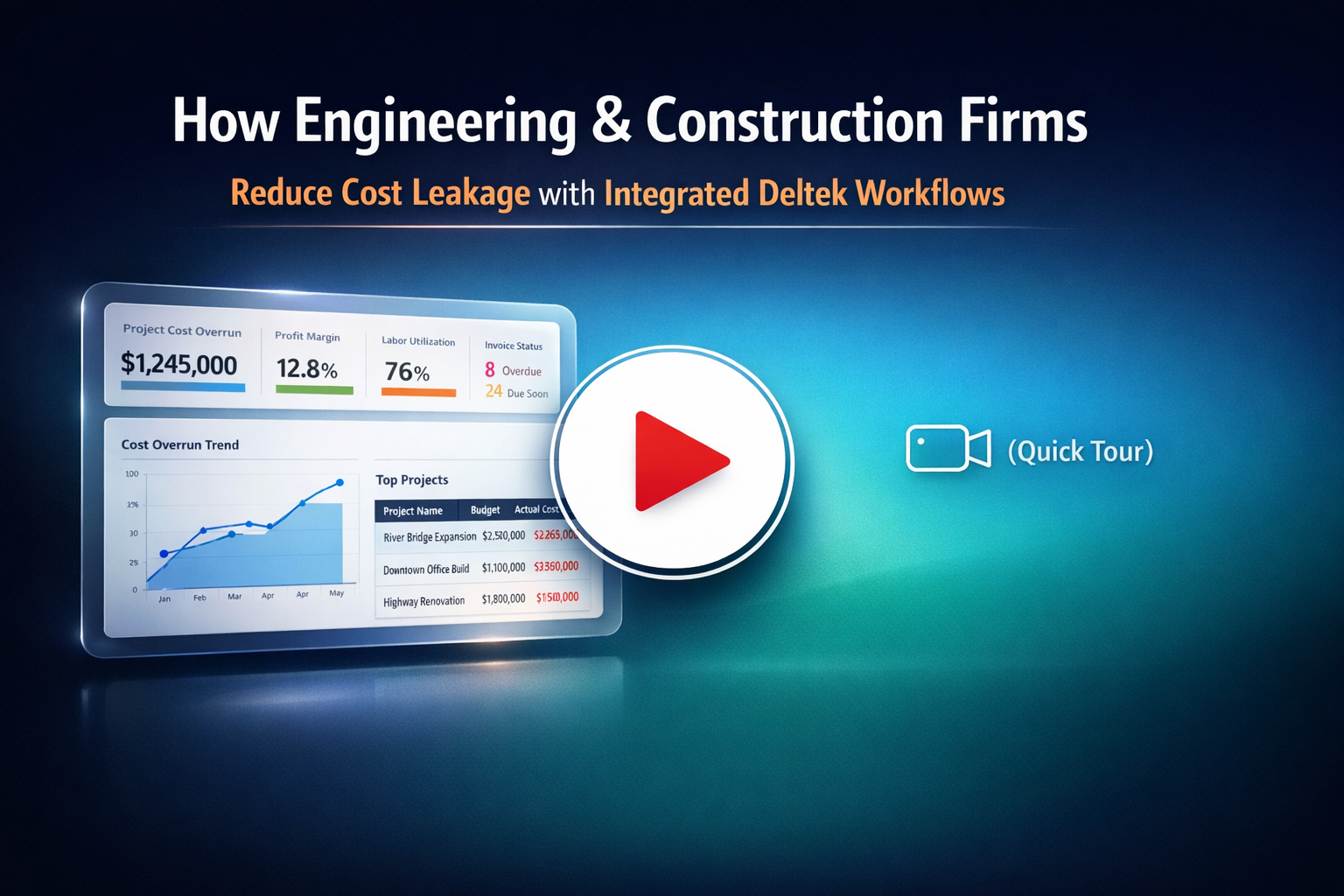Table of Content
- Why Ecommerce CRM Is Essential for Online Success
- Key Features of CRM for Ecommerce Businesses
- Best CRM Software for Ecommerce in 2025
- CRM for Ecommerce Website: Choosing the Right Platform
- The Future of Customer Relationship Management in Ecommerce
- Final Thoughts on Finding the Best CRM for Ecommerce
- FAQ
Why Ecommerce CRM Is Essential for Online Success
In e-commerce, timing and relevance are everything. Customers expect personalized experiences, fast responses, and consistency across every touchpoint. That’s exactly where an e-commerce CRM comes in and why it’s a game-changer for scaling online success.
Instead of juggling data across multiple platforms, a CRM brings everything together — orders, support tickets, browsing behavior, emails, and more into a single, up-to-date customer profile. With this foundation in place, personalization becomes effortless. Whether you’re triggering tailored emails, surfacing product recommendations, or segmenting VIP buyers for exclusive campaigns, CRM data lets you do it confidently and precisely.
Retention is another critical win. With an eCommerce customer relationship management system, you can spot when a customer is slipping away and automatically reach out with a well-timed message, offer, or reminder. It keeps your brand top-of-mind and encourages repeat purchases without added manual effort.
For growing e-commerce brands, a CRM and ecommerce collaboration isn’t just helpful — it’s essential. The result? More engagement, more loyalty, and more revenue.
Key Features of CRM for Ecommerce Businesses

A modern CRM tailored for e-commerce comes packed with features designed to improve targeting, automate operations, and build stronger customer relationships. Here is a breakdown.
Lead and Deal Management
Ecommerce CRMs help you capture and follow up on leads without anything slipping through the cracks. From the first interaction to the final conversion, you can track every touchpoint and score leads based on their level of engagement. Visual deal pipelines make it easy to manage opportunities, customize stages to match your sales flow and prioritize deals that are most likely to close.
Contact and Account Management
Stay on top of customer relationships with rich contact and account profiles. Every customer’s communication history, order data, and support interactions are stored in one place, so your team always has the context needed to provide tailored service and recommendations.
Personalization and Customer Segmentation
E-commerce CRMs make it easy to segment your audience based on real-time data like purchase history, browsing habits, location, or engagement level. Whether you're sending a birthday discount or recommending products based on past orders, segmentation ensures every message hits the mark. This kind of smart targeting boosts open rates, click-throughs, and, most importantly, conversions.
CRM and Ecommerce Integration for Seamless Operations
The best ecommerce CRMs integrate directly with your online store, payment gateways, support tools, and marketing platforms. This means customer data is synced automatically, from order status and shipping updates to support requests and returns. With everything connected, your teams can work more efficiently, and your customers get a smoother, more cohesive experience — from first click to post-purchase follow-up.
Tracking Customer Behavior Across Channels
Customers don’t just engage with your brand in one place — they browse your site, open emails, click ads, chat with support, and scroll through social media. A good CRM tracks all of it. By capturing behavior across multiple channels, you understand what drives action and where you’re losing moments. These insights let you fine-tune your campaigns, optimize touchpoints, and deliver messaging that feels timely and relevant.
Sales Forecasting and Analytics
Leverage data-driven insights to plan ahead. CRMs use historical trends and predictive modeling to help forecast future sales, giving your team a clearer picture of what's coming. Advanced analytics also lets you evaluate performance, spot patterns, and refine your approach to maximize ROI.
Post-Sales and Customer Lifecycle Management
The customer journey doesn’t end at checkout. A modern CRM helps you stay engaged post-purchase with tools to manage onboarding, support interactions, and renewals. It keeps customers happy, boosts retention, and increases lifetime value without adding manual overhead.
Best CRM Software for Ecommerce in 2025
What CRM is the best for e-commerce platforms? Read the following descriptions and choose your ideal fit!
monday CRM

monday CRM is notable for its visual, user-friendly design and high flexibility. It helps teams to create custom automations, track each stage of the sales pipeline, and adjust workflows to their own business operations. With quick onboarding and collaborative capabilities, it's excellent for organizations looking for simplicity without losing control.
Main Functions:
- Visual sales pipelines
- Customizable workflows and automations
- Lead and contact management
- Task and project tracking
- Sales forecasting and analytics
Integration Features:
- Integrates with Shopify, WooCommerce, BigCommerce, Gmail, Slack, and other 200+ apps.
Advantages for Ecommerce:
- Highly flexible to suit various sales processes
- User-friendly interface suitable for teams of all sizes
- Quick onboarding with visual dashboards
Disadvantages for Ecommerce:
- Limited advanced CRM capabilities for complex needs
- Some users report integration challenges with certain third-party tools
Pricing:
- Basic: $12/month, per user, billed annually
- Standard: $17/month, per user, billed annually
- Pro: $28/month, per user, billed annually
- Enterprise: Custom pricing
Salesforce

Salesforce is one of the most powerful and scalable ecommerce CRM software on the market. It’s built for businesses of all sizes but is especially favored by large enterprises thanks to its deep customization options and massive integration ecosystem. From advanced analytics to tailored sales workflows, it’s a true enterprise-grade solution.
Main Functions:
- Comprehensive contact and opportunity management
- Advanced sales forecasting
- Customizable dashboards and reports
- AI-powered insights with Einstein Analytics
Integration Features:
- Integrates well with ecommerce platforms such as Shopify and Magento
- Extensive third-party app ecosystem via AppExchange
Advantages for Ecommerce:
- Robust customization options
- Strong community and support resources
Disadvantages for Ecommerce:
- Higher cost compared to other CRMs
- Complexity may require dedicated admin or developer support
Pricing:
- Starter Suite: $25/month, per user, billed annually
- Pro Suite: $100/month, per user, billed annually
- Enterprise: $165/month, per user, billed annually
Zoho CRM

Zoho CRM offers a feature-rich yet budget-friendly platform that fits perfectly with small to mid-sized businesses. As part of the larger Zoho ecosystem, it brings together tools for sales, marketing, and customer service, making it a solid all-in-one option for growing teams.
Main Functions:
- Lead and contact management
- Sales pipeline tracking
- Workflow automation
- AI-powered sales assistant (Zia)
Integration Features:
- Integrates with Zoho's suite of applications
- Connects with 1000+ third-party tools
Advantages for Ecommerce:
- Affordable pricing with a free tier available
- A comprehensive feature set appropriate for small to midsize organizations
- Strong reporting and analytics capabilities
Disadvantages for Ecommerce:
- Some users experience a learning curve with advanced CRM functionalities
Pricing:
- Standard: €14/month, per user, billed annually
- Professional: €23/month, per user, billed annually
- Enterprise: €40/month, per user, billed annually
- Ultimate: €52/month, per user, billed annually
Pipedrive

Pipedrive is one of the best CRM software for ecommerce built with salespeople in mind. Its clean, visual pipeline makes it easy to manage deals, prioritize leads, and stay on top of the sales cycle. It’s lightweight, intuitive, and perfect for teams that want to close more deals without unnecessary complexity.
Main Functions:
- Visual sales pipeline management
- Deal and activity tracking
- Email integration and tracking
- Sales reporting and forecasting
Integration Features:
- Integrates with over 500 apps
Advantages for Ecommerce:
- Intuitive interface with easy navigation
- Focused on sales process optimization
- Affordable pricing tiers
Disadvantages for Ecommerce:
- Lacks built-in marketing automation features
- No free version available
Pricing:
- Essential: €14/month, per user, billed annually
- Advanced: €24/month, per user, billed annually
- Professional: €49/month, per user, billed annually
- Power: €59/month, per user, billed annually
- Enterprise: €79/month, per user, billed annually
HubSpot

HubSpot is an all-in-one CRM platform built around inbound marketing principles. It combines an intuitive interface with a full suite of tools for sales, marketing automation, customer service, and content management. Known for its ease of use and strong educational resources, HubSpot is a go-to choice for businesses looking to attract, engage, and retain customers in one connected system.
Main Functions:
- Contact and deal management
- Email marketing and automation
- Sales pipeline tracking
- Customer segmentation
Integration Features:
- Seamless integration with Shopify, BigCommerce, and Magento
- Extensive app marketplace for additional tools (1,000+ third-party apps)
Advantages for Ecommerce:
- Free CRM with robust features
- Strong inbound marketing tools
- User-friendly interface
Disadvantages for Ecommerce:
- Advanced features can become costly
- Customization may require third-party integrations
Pricing:
- Free Tools
- Sales Hub Starter: costs €15/mo/seat
- Sales Hub Professional: costs €90/mo/seat
- Sales Hub Enterprise: costs €150/mo/seat
Freshsales

Freshsales, part of the Freshworks suite, is a unified CRM built to simplify contact management and customer engagement. It includes phone and email capabilities, AI-powered lead scoring, and behavioral tracking to give teams a complete picture of their pipeline. With its clean UI, responsive support, and insightful reporting, Freshsales is a strong choice for ecommerce brands looking to streamline outreach and make data-driven decisions.
Main Functions:
- Lead, contact, and deal management
- Built-in phone and email
- AI-powered lead scoring
- Sales sequences and automation
Integration Features:
- Integrates with Freshworks suite and over 1,000 third-party apps
Advantages for Ecommerce:
- Intuitive UI with excellent customer support
- Offers necessary reports and analytics for ecommerce performance
- Affordable pricing with a free tier
Disadvantages for Ecommerce:
- Some sophisticated functions are only accessible for higher-tier plans.
- Limited customization in lower-tier plans
Pricing:
- Free plan: $0 for 3 users
- Growth: $9/month, per user, billed annually
- Pro: $39/month, per user, billed annually
- Enterprise: $59/month, per user, billed annually
Capsule

Capsule strikes a balance between simplicity and power, making it an ideal CRM for online stores. It offers essential CRM tools, including opportunity tracking, customizable pipelines, and sales forecasting based on probability and deal value. Capsule is ideal for teams that want a no-fuss CRM that delivers clarity, control, and actionable insights without overcomplicating things.
Main Functions:
- Contact and sales pipeline management
- Task and calendar management
- Sales forecasting
- Customizable sales milestones
Integration Features:
- Integrates with G Suite, Mailchimp, and Xero, and over 60 native integrations
- API available for custom integrations
Advantages for Ecommerce:
- Simple yet powerful CRM suitable for medium-sized businesses
- User-friendly interface
- Affordable pricing
Disadvantages for Ecommerce:
- Limited advanced features compared to other CRMs
- Fewer native integrations
Pricing:
- Starter: £14/month, per user, billed annually
- Growth: £27/month, per user, billed annually
- Advanced: £42/month, per user, billed annually
- Ultimate: £60/month, per user, billed annually
CRM for Ecommerce Website: Choosing the Right Platform
Picking a CRM isn’t just about features — it’s about finding the right fit for how your online business runs and where you want it to grow. Before diving in, it’s worth clarifying what matters most to your team. Here are some questions to help you decide:
- What’s the main problem you’re trying to solve? Whether it’s boosting sales, refining your marketing strategy, or centralizing customer data, understanding your top priorities will steer you in the right direction.
- How many people on your team need access? Some platforms charge by user, so it’s good to know your headcount upfront.
- What’s your budget? There’s a wide range of options, from lean startups to enterprise-level solutions. Setting a realistic budget keeps your search focused.
- Which CRM features are non-negotiable? Think beyond the basics: Do you need marketing automation? Detailed reporting? Direct integration with your e-commerce platform?
- How flexible should it be? If your workflows are unique, you’ll want a system that’s customizable enough to bend without breaking.
- How much support will you need? Depending on your in-house expertise, responsive support or onboarding help might be a deal-breaker.
Taking a step back to answer these questions helps cut through the noise. The goal isn’t just to find a CRM that looks good on paper — it’s to find one that supports your day-to-day operations and scales with your business.
The Future of Customer Relationship Management in Ecommerce

As eCommerce grows more competitive, the CRM tools of tomorrow are evolving into intelligent ecosystems that help brands stay agile, connected, and customer-first. Here’s what’s shaping the next generation of ecommerce CRM platforms.
AI and Predictive Analytics in Ecommerce CRM
AI is transforming CRM from a static data hub into an active decision-making engine. With predictive analytics, e-commerce teams can anticipate buying behavior, trigger timely automations, and tailor messaging based on patterns. It means smarter campaigns, fewer missed opportunities, and a much more intuitive customer journey.
Trends Shaping the Future of CRM for Ecommerce Businesses
From deeper personalization to tighter integrations, modern ecommerce CRM solutions are adapting quickly to rising expectations. Real-time data syncs, cross-channel messaging, and customer-first design are no longer “nice-to-haves”— they’re the new baseline. The trend is clear: CRMs are becoming the digital foundation of the entire ecommerce stack.
Voice and Conversational CRM Interfaces
As voice search and chat interfaces gain traction, CRM systems are starting to integrate with voice assistants and conversational user interfaces. Whether it’s pulling up a customer profile via voice or automating chat-based customer support through AI, conversational CRM will play a big role in making customer interactions faster and more human.
Integration with Emerging Technologies
As e-commerce businesses adopt new technologies, such as AR/VR for virtual try-ons or blockchain for secure transactions, CRMs will need to keep pace. The next generation of CRM platforms will offer native support or easy integration with emerging tools, ensuring brands stay ahead without requiring heavy lifting from development teams.
Final Thoughts on Finding the Best CRM for Ecommerce
Finding the ideal CRM for your ecommerce business goes beyond feature lists. In a market where shoppers expect fast, personalized service and seamless interactions, your CRM should empower your team to deliver just that.
Whether you're a fast-growing startup needing a flexible tool like monday CRM, an enterprise ready for the power of Salesforce, or a small business looking for value-packed solutions like Zoho CRM or Freshsales, the key is to pick a platform that integrates smoothly with your tech stack and scales with your business.
At SyncMatters, we know that no two ecommerce setups are the same. That’s why we help you connect your CRM with the rest of your ecosystem, whether it’s your online store, marketing tools, or support systems, so your data stays in sync, your workflows stay smooth, and your teams stay aligned.
Need help integrating your CRM? SyncMatters is here to support every step of your ecommerce journey.
FAQ
What Is CRM in E-commerce?
CRM in eCommerce refers to software that helps you manage customer relationships, track interactions, and automate sales and marketing to boost conversions and retention.
Do I Need CRM for Ecommerce?
Yes, CRM helps you organize customer data, personalize communication, automate workflows, and effectively scale your sales efforts.
What CRM Is Most Often Used in E-commerce?
Popular choices include HubSpot, Salesforce, Zoho CRM, and monday CRM, thanks to their ecommerce integrations and marketing features.
Does My Small Business Need a CRM?
Absolutely. A CRM helps small businesses stay organized, build stronger customer relationships, and compete more effectively, even with limited resources.
What Are Common Mistakes When Integrating CRM with Ecommerce?
Mistakes include poor data mapping, ignoring customer journey alignment, lack of team training, and using CRMs that don’t integrate well with your e-commerce platform.




